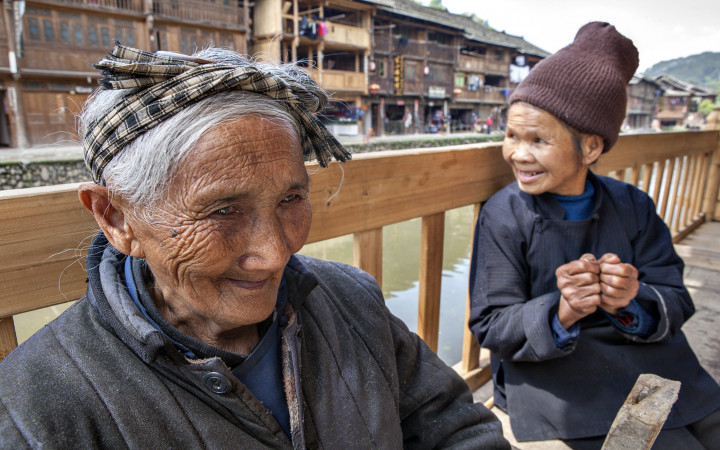Today’s Wonder of the Day was inspired by Andrea. Andrea Wonders, “What are the Blue Zones?” Thanks for WONDERing with us, Andrea!
Would you choose to live forever, if you could? It’s a difficult question to answer. After all, there are major benefits and drawbacks to both decisions.
Of course, no one actually lives forever. Still, most people would like to live for as long as possible. Healthy habits can make a big difference. Which habits affect life expectancy the most? Just ask the people who live in the world’s five Blue Zones®!
What are Blue Zones? They’re geographic regions in which people live longer, healthier lives than average. In fact, they have high populations of centenarians, which are people who live 100 years or more.
Working with a team from National Geographic, author Dan Buettner set out to study Blue Zones. He wanted to learn why people in these areas have longer lifespans and better health. To find out, the team looked at five Blue Zones: Nicoya Peninsula, Costa Rica; Loma Linda, California; Ogliastra Region, Sardinia; Okinawa, Japan; and Ikaria, Greece.
What did they find? Life in each Blue Zone is unique. However, they do tend to have a few things in common. For example, the people in each region largely eat plant-based diets. They consume many vegetables and legumes and little meat. They also avoid overeating.
People in Blue Zones also get plenty of exercise. Instead of hitting the gym, though, they get a workout from their normal daily activities. Some live in regions that require exertion, like mountain ranges. Others work jobs that keep them active, like gardening or caring for farm animals.
Mental and emotional health may be just as important as physical well-being. Having a sense of purpose and ways to manage stress may contribute to long, healthy lives. Belonging to a group, such as a religion or close-knit family, is also common in Blue Zones. Being part of a group can have a larger impact when members support other healthy behaviors.
Finally, healthy sleep habits benefit the people in Blue Zones. On average, they get about seven hours of sleep each night. It’s also common to nap for up to 30 minutes during the day. Most importantly, they listen to their bodies and avoid sleeping too little or too much.
Do you have to move to a Blue Zone to live a long, healthy life? Of course not! You can take steps toward that goal wherever you are. It’s always a good time to start practicing habits that can help you stay happy and healthy!
Standards: NHES.A.1, NHES.A.2, CCRA.R.4, CCRA.L.3, CCRA.L.6, CCRA.R.10, CCRA.R.2, CCRA.SL.1, CCRA.W.2, CCRA.W.4, CCRA.L.1, CCRA.L.2, CCRA.R.1, CCRA.R.2, CCRA.SL.1, CCRA.SL.2, CCRA.W.2, CCRA.W.4, CCRA.W.9, CCRA.L.1, CCRA.L.2




